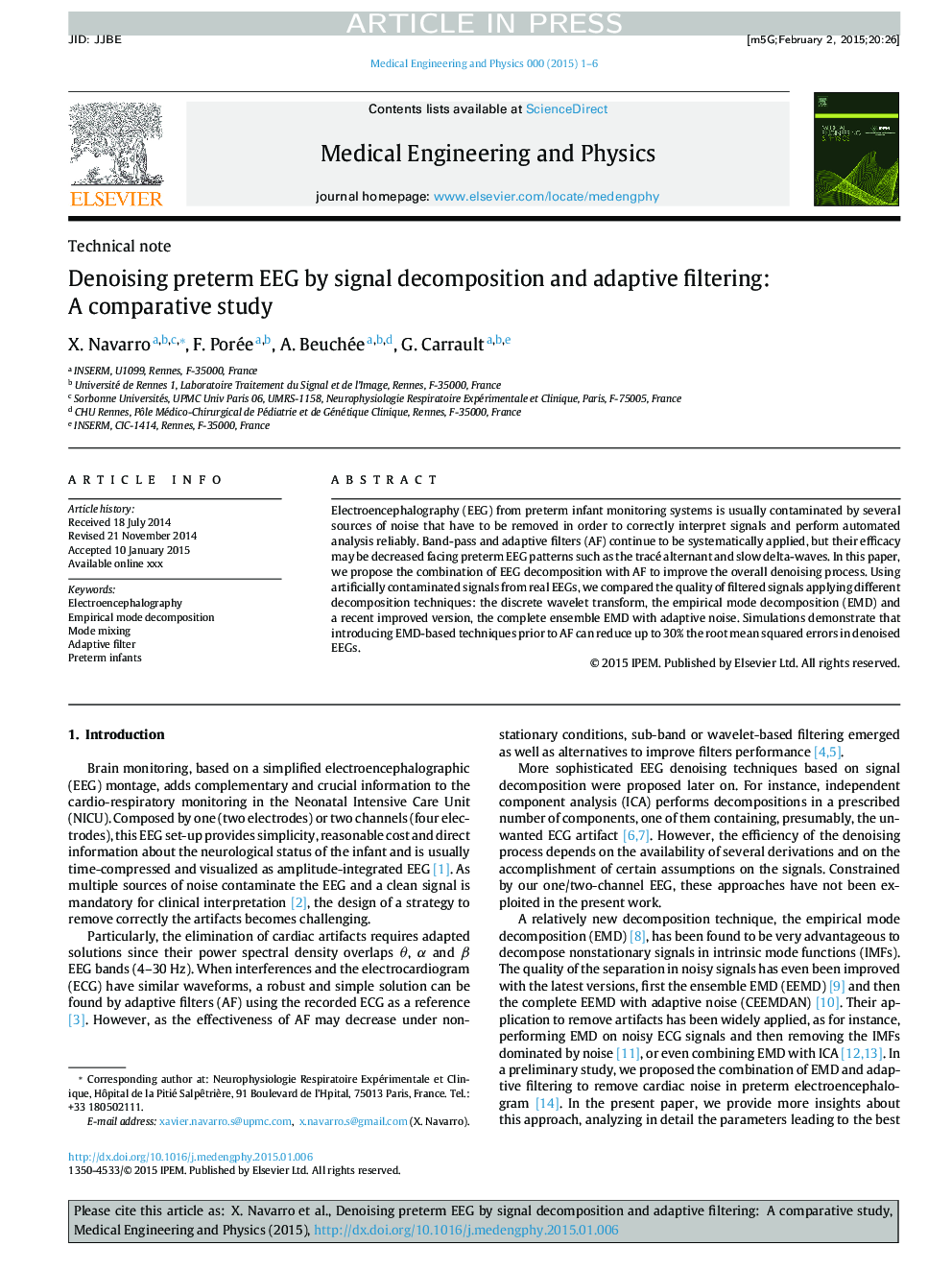| Article ID | Journal | Published Year | Pages | File Type |
|---|---|---|---|---|
| 10435049 | Medical Engineering & Physics | 2015 | 6 Pages |
Abstract
Electroencephalography (EEG) from preterm infant monitoring systems is usually contaminated by several sources of noise that have to be removed in order to correctly interpret signals and perform automated analysis reliably. Band-pass and adaptive filters (AF) continue to be systematically applied, but their efficacy may be decreased facing preterm EEG patterns such as the tracé alternant and slow delta-waves. In this paper, we propose the combination of EEG decomposition with AF to improve the overall denoising process. Using artificially contaminated signals from real EEGs, we compared the quality of filtered signals applying different decomposition techniques: the discrete wavelet transform, the empirical mode decomposition (EMD) and a recent improved version, the complete ensemble EMD with adaptive noise. Simulations demonstrate that introducing EMD-based techniques prior to AF can reduce up to 30% the root mean squared errors in denoised EEGs.
Keywords
Related Topics
Physical Sciences and Engineering
Engineering
Biomedical Engineering
Authors
X. Navarro, F. Porée, A. Beuchée, G. Carrault,
